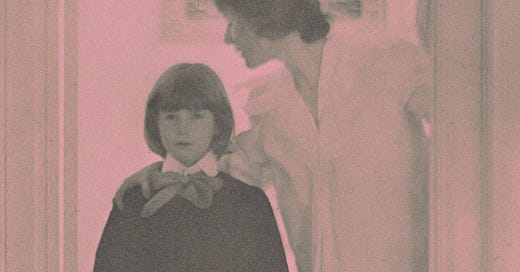This essay was originally published on The Vardas on February 14th, 2023
A cherished book, handed down from mother to daughter. A young girl crying her sorrows away into her silk pillowcase. Two sisters giggling together in a candlelit room until their tummies are sore. Watching a film while a usually stubborn cat snuggles up to her owner. A young man curiously walks into a girl’s life and changes her perspective on the world.
This is how we love.
I have always found it so peculiar how the things we need most, come into our lives when we least expect it. Recently, I have been going through a strange transitional period in my experience of love. Most of my life, I have loved deeply, and felt that I was in control of these emotions. Coming into my adulthood, I am beginning to feel quite overwhelmed by these confusing feelings. It has been hard to make sense of the budding and evolving relationships around me, when I question if I even know how to love.
This all changes when I am about to embark on a trip to Hawaii, where I hope I will have time away from home to reflect on my feelings about love. As I finish gathering together the last of the belongings I pack at my mum’s house for my holiday, she grabs a book off of her color-coded bookshelf and hands it to me. The author of the book, Clementine Ford, is my mother’s favorite feminist, who shares all sorts of insight on her Instagram page. My mum has sent me many of her posts discussing important topics, and the comments are filled with misogynistic remarks and people calling her a “man-hater.” I particularly enjoy her vivacious, unapologetic way of approaching these issues, as I feel the ability to be so open and direct in public speech has been stripped from women for so long. In this moment of receiving the book, I did wonder to myself—should I really be fueling my fire of confusion and hurt right now due to my frustration with the world? I was wrong. This book is not about the patriarchy or fucked up gender issues (whilst she does have other books on these topics), but instead about the beauty and complexity of love.
How We Love: Notes on a Life is tender and vulnerable, a memoir touching on all of the different relationships of love in Ford’s life so far - losing her mother from cancer far too young, her first love, queer love, and navigating love as an adult. It’s refreshing to view love in its different forms, and Ford does not shy away from the gritty details, taking us on a deeply personal journey. It felt so comforting to recognise similar feelings of discomfort and fear in love, something I had never experienced before. In Ford’s emotional descriptions of moments of rejection and reflection on her own flaws in relationships, I see myself. When she cries about the fragility of connection, I cry by her side, as snotty-nosed tissues begin to build a fort around me. I giggle and sigh with embarrassment remembering all of the times I loved too hard and as a result, made some questionable decisions in order to impress that person. Whilst I am still growing into a young adult, I was able to appreciate the essays Ford writes on her experiences as an adult; it gave me a sense of relief, knowing that no one has the answers to how to love, what matters is how we love, and what purpose it gives us.
To end the book, Ford shares a final lesson in love, reminding us of its fleeting nature, “I have learnt so many lessons about love through the gift of having my son, but by far the hardest one is this; that this big love, the biggest love I have had and ever will have, is fleeting. It is the only kind of love we seek in which the purpose is for it to one day leave us.
The mark of my love lies in how willing I am to let it go,”
Throughout the essays, Ford invites us into her most intimate thoughts and feelings, one motif being that she has always felt love extremely deeply. It has been hard for her to accept that love is not fixed, but everchanging. Reading this reminded me of myself, as I have always attempted to define love and its conditions to give me a way to control my overwhelming emotions. But love can not be put into a box, and it is much more liberating to come to terms with the instability of this human experience.
Ford circles back to reflections on the love she shares with her young son. All of her mistakes and discoveries in her many relationships have allowed her to understand that to love, is to love hard. Love is fleeting, and what is most important is that you allow yourself to be engulfed fully in its every moment, before it one day slips away into nothingness. To Clementine Ford, this is how we love.




